I Was Sentenced to 15 Years in Prison by Egypt for Taking Pictures
![]()
When I returned to Egypt in August 2014 after studying civic engagement in the US, I found a country of failed revolution and lost aspirations; a country polarized and torn apart following three years of protests and clashes.
The question of how I could participate was answered in the form of a Flickr account I came across while checking my Facebook feed. It was the albums of photojournalist Mossa’ab Elshamy, a visual documentation of Egypt’s history in the last three years.
From there, I didn’t waste any time. I spent all my saved money on a Canon 600D DSLR camera and I started taking pictures of the protests happening in the streets of Cairo.
After almost two months, I started contacting and selling my pictures to news agencies like The Anadolu News Agency, Xinhua, and The Associated Press. On the fourth anniversary of the revolution, I found myself in the spotlight after one of my pictures showing a fatally injured 10-year-old boy during clashes between the Islamist protesters and the police in one of Cairo’s overcrowded neighborhoods circulated social media.
This caused a lot of trouble with the police, but the impact caused by my picture reaffirmed my belief that my work is important and that I have an obligation to continue doing what I do.
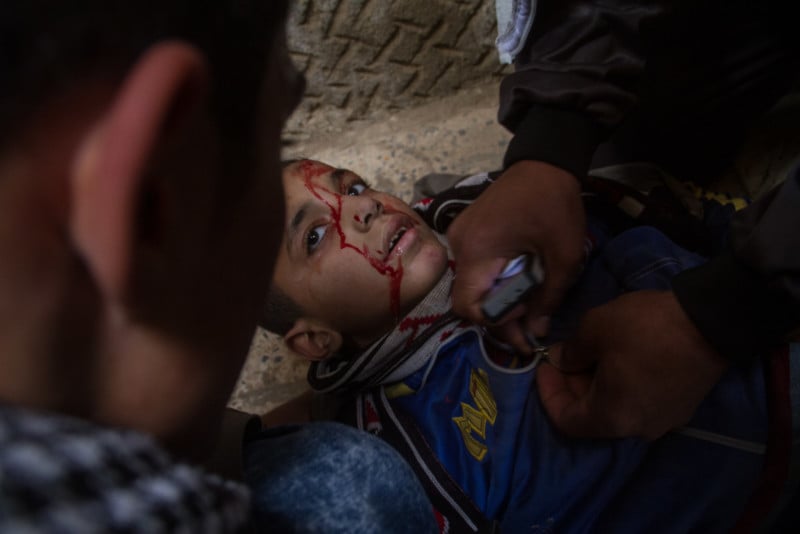
By the beginning of 2015, I also started pitching and writing my own pieces and articles for websites interested in the Middle East. In addition to documenting the political turmoil and the protests witnessed in the streets of Cairo, I was now covering a wide range of social and religious issues. Most important to me, though, I was also covering how those issues interacted and were affected by the political situation in the country.
My work led and inspired me to go through Egypt from the north to the south, and from the east to the west. It was my way of building a greater understanding of my people and the rich, sometimes chaotic, society of my country.
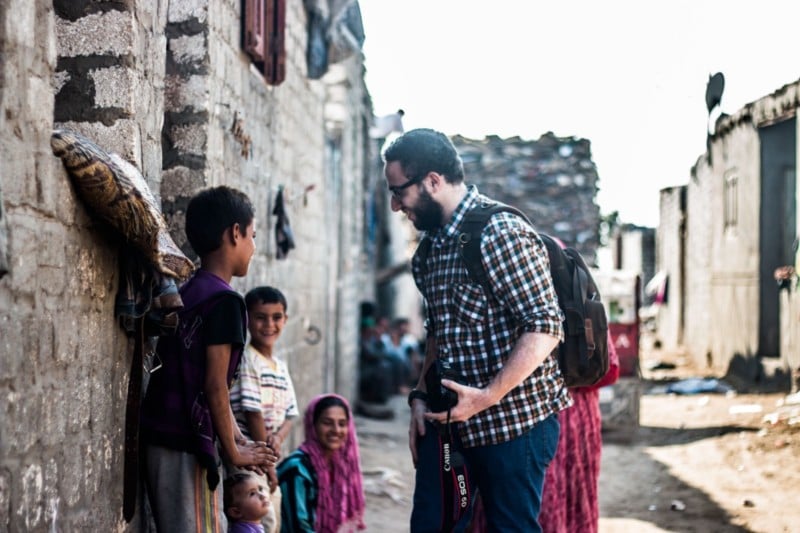
A photo of me at work, captured while working on a project documenting the lives of the forgotten second generation of Palestinian refugees who fled to Egypt following the declaration of the state of Israel in 1948. © Mohamed El Morshed
I genuinely and truly loved my job. I spent my days talking to people from different parts of Egypt, collecting their stories and photographing them—and I got paid for it!
Of course, the good was not without the bad. Even though I loved working, the many challenges and risks of working as a journalist in Egypt were always present.
For instance, I was shot at twice while covering clashes in Cairo. In fact, my head still has pieces of a round bullet that almost cost me my left eye. I was also brutally battered a couple of times by police officers for being there around the protests.
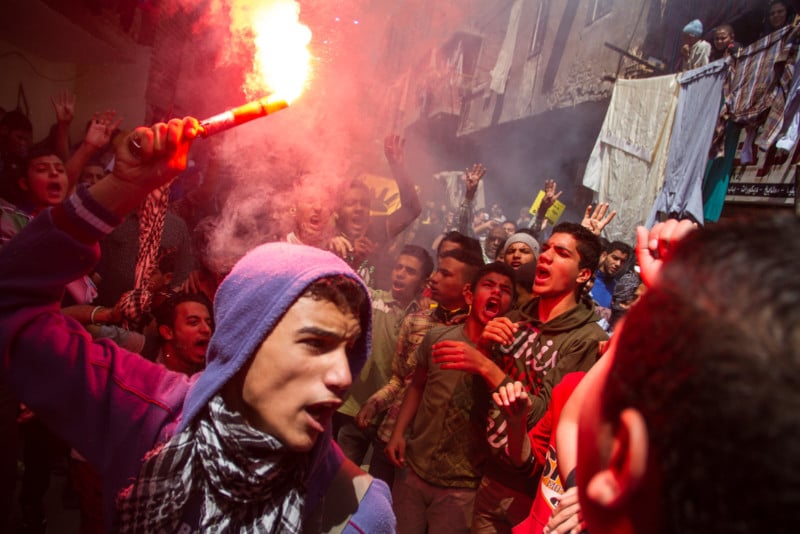
And the risks weren’t only related to the unaccountable security forces of Egypt. You also have to deal with the ordinary people of the country. You see, the Egyptian media that is controlled by the army is spreading the conspiracy theory that all of the world is conspiring against Egypt. That, combined with poverty, harsh economic conditions and lack of education, has led the people of the country to develop a hostility towards journalists working with foreign media outlets. There were many times that I was almost arrested by citizens just for asking questions or taking pictures!
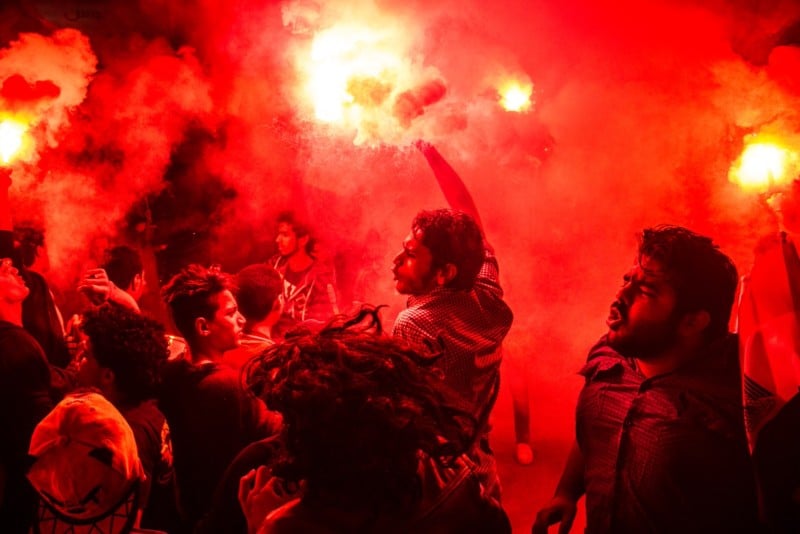
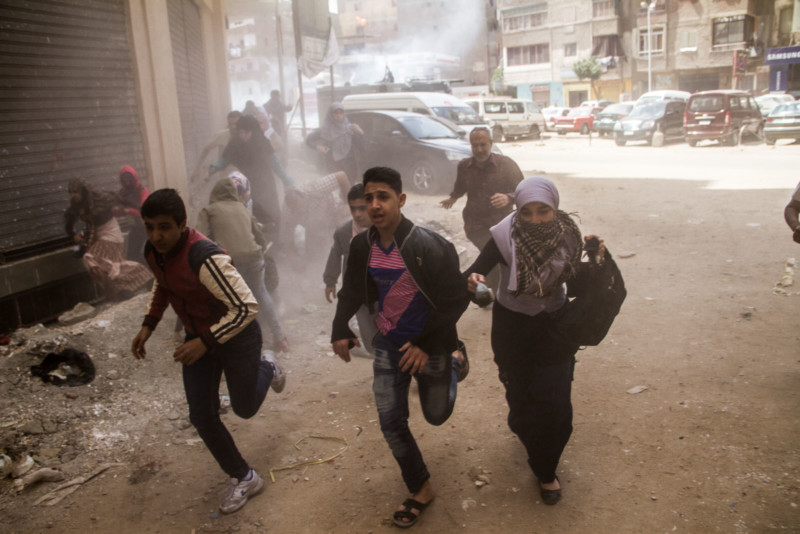
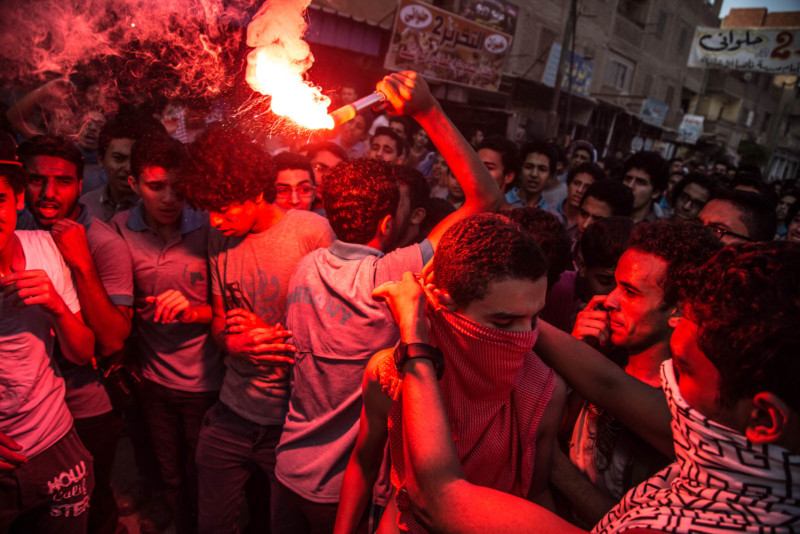
But I was 22. I was young, careless and a firm believer in the importance of my work. I was not going to let myself be stopped by mere bullets, beatings, and angry people.
That all changed one day in July 2016 — the worst day of my life.
I woke up to a phone call from a lawyer whom I had never met before, insistent on reaching me to inform me that I was sentenced in absentia to 15 years in prison for covering a protest back in December 2014.
The Egyptian military government systematically targets journalists, activists, and writers, and one of the most common ways is to start a case against the targeted person without notifying or informing them in any way. After the sentence is passed in absentia, the sentenced individual is required by Egyptian law to turn himself in. Even if you appeal, that process can take anywhere from one to three years.
Because of my work, I had first-hand experience with activists and journalists who had to spend two or three years in horrible conditions in prison just to prove their innocence! Fearing a similar fate to Shawkan, I decided I was not going to go through this.
Funnily enough, Egypt’s own bureaucracy was the reason I was able to escape the country. You see, after being sentenced, the police send your name to the country’s airports in a process that fortunately takes almost two weeks. Even knowing this, I was still faced with another problem: I was not allowed to travel outside the country since I had refused to enlist to be recruited to serve in the army—something all young Egyptians are required to do for one year.
Through some of my contacts, I was introduced to a forger who agreed to forge a travel permit for me. Forgery is punishable by three years in prison by Egyptian law, but I was already sentenced to 15 years. What was three more years? With this reasoning in my head, I handed the forged permit to the airport officer. My face was steady, but my heart was scared.
An hour later, I was on the plane headed for Hong Kong. It was the first time I had eaten something since the morning I found out about my sentence. I had lost 5 kilograms in three days.
I chose Hong Kong because you are not required to issue a visa to enter the country, and clearly I had no time to waste applying for a visa.
Once I arrived in Hong Kong, I had a couple of hundred dollars on me and no way to make money. I spent 10 days and nights in Hong Kong’s international airport. I thought of myself as Tom Hanks in the 2003 movie The Terminal.
For the next six months, I traveled through southeast Asia, hopping from one country to another once my tourist visa ended. I made a lot of friends who helped me when possible, and I applied for international protection programs when I needed to go into a country where I couldn’t stay legally. But I knew I couldn’t continue traveling from one country to another for the rest of my life.
Through the help of Amnesty International, I applied for a program funded by the Spanish government through which four at-risk human rights defenders are given an entry visa and residency in Spain for a year. I was accepted in the middle of December and arrived in Spain on the last day of 2016.
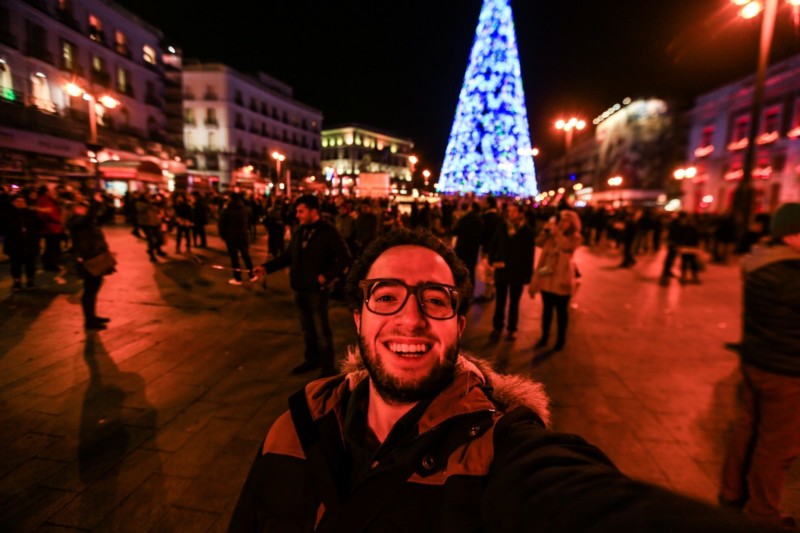
In Spain, a new chapter of my life started. This chapter is not without its hardships, the most important of which being the language obstacle. (As my mother joked in a phone call, I spent four years of my life learning English and French just to end up in Spain!) But after eight months of studying Spanish daily and countless hours passed in Madrid’s public libraries, I am happy to say language is no longer an obstacle. I still have some problems using el subjuntivo (a grammatical mood used only in the Spanish language) and communicating with the lovely people of Andalucia (a region located in the South of Spain) with their totally different accent of Castellano (Spanish language as its called in Spain).
I am also happy to report that I applied for asylum last April and my application was accepted in May. Right now, I hold the red card of refugees and will be able to work legally in October. Until that day, I will spend my days studying and mastering my languages, traveling around Spain and attending as many Spanish festivals as I can.
The only downside of my situation is the fact that I can’t travel outside of Spain (at least not yet) as I had to lose my Egyptian nationality and passport in the early process of the asylum.
However, given the fact that I could be sitting in a small cell in an overcrowded Egyptian prison right now, I really have nothing to complain about!
About the author: Belal Darder is an Egyptian photojournalist who’s currently an Egyptian refugee in Spain. The opinions expressed in this article are solely those of the author. You can find more of his work and connect with him on his Facebook, Flickr, and Instagram. This article was also published here.
Image credits: Header photo © Ammar Shady